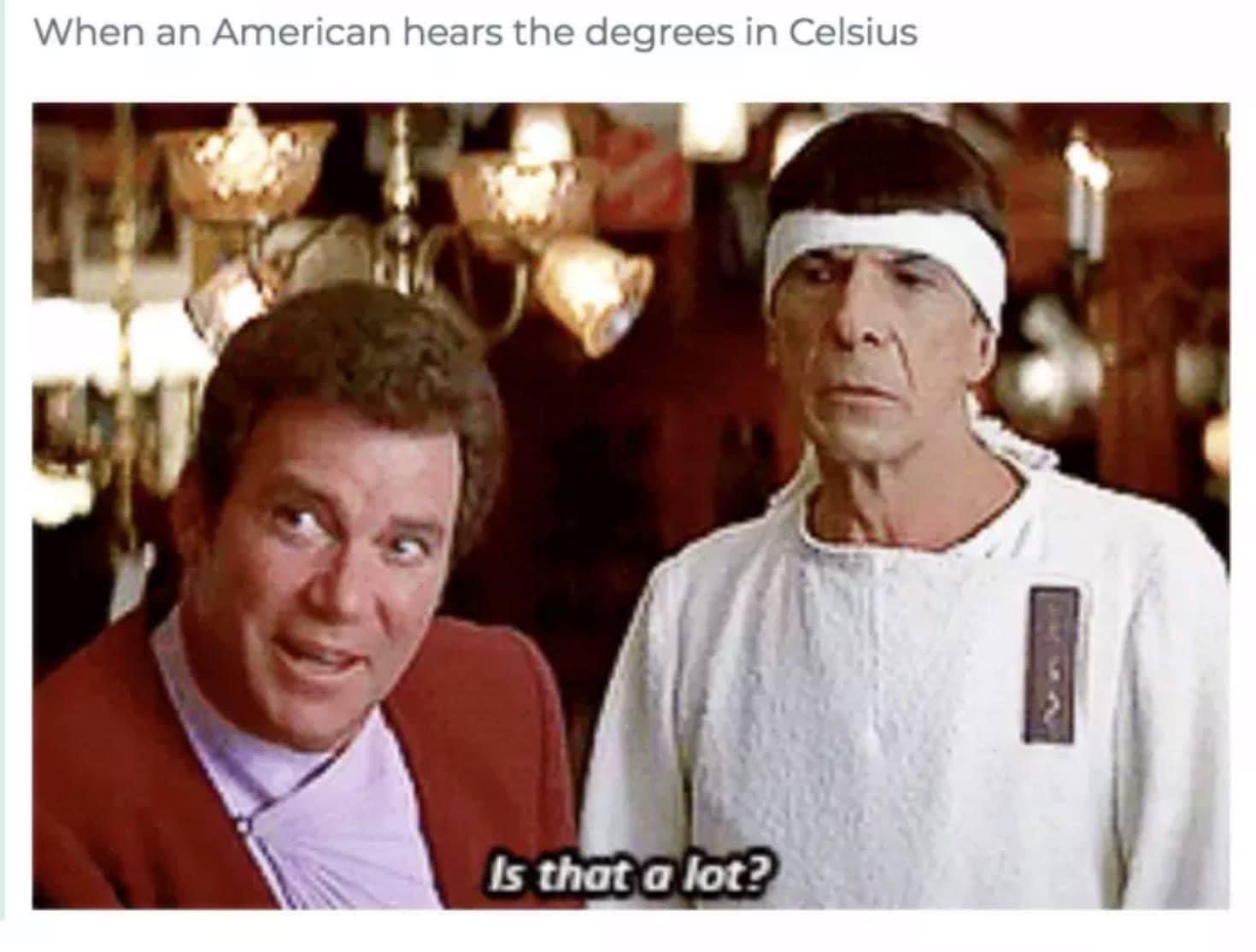this post was submitted on 29 Aug 2023
754 points (97.1% liked)
Memes
52836 readers
281 users here now
Rules:
- Be civil and nice.
- Try not to excessively repost, as a rule of thumb, wait at least 2 months to do it if you have to.
founded 6 years ago
MODERATORS
you are viewing a single comment's thread
view the rest of the comments
view the rest of the comments

I will be controversial and say that I think Fahrenheit makes more sense when talking about the weather. Its scale simply makes more sense on human terms: 0 is fucking cold, 100 is fucking hot. This is about the tempurature range you can expect to experience between winter and summer throughout much of the world.
Celsius makes more sense for cooking (and everything else) since its scale is calibrated around the phase changes of water.
No argument here. Fahrenheit offers better granularity within the range of temps that humans are likely to experience.
Fahrenheit is too granular, imo. In day to day life I almost always hear people talk about it in ranges of temperature (eg. "mid 70s") which defeats the point of having a more granular system.
Even in Celsius you often "it's been 25 and 30" etc. Weather is just not a super accurate thing, it can be different up or down the hill, at the next town over, etc, so I don't get the granularity argument. Maaaybe I can understand the one about 0 to 100 making sense for weather related temperatures to people used to it, maybe.